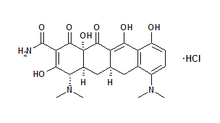Cardiac transplant patients had a significantly higher incidence of
periodontal disease than patients with no history of heart disease
involved in a recent study, according to data presented today at the
24th World Congress of Cardiology meeting in Sydney, Australia.
The study adds further evidence that periodontal disease - an infection
of the gums - may be linked to more serious systemic illnesses. In
the study, "Periodontitis: A New Cardiovascular Risk Factor,"
researcher Jan Lessem, M.D., Ph.D, FACC, and Chief Medical Officer
and Executive Vice President Clinical Research of OraPharma, Inc.
(Nasdaq: OPHM), tracked periodontal records of 82 cardiac transplant
patients and a larger group of 962 patients with no history of heart
disease. The study concluded that 77 percent of the transplant
patients had periodontitis, compared with only 13 percent of the
healthy patients.
"This study adds one more piece of significant evidence that, along
with high cholesterol and blood pressure, periodontal disease should
be seen as a risk factor for cardiovascular disease," Dr. Lessem
said. "In recent decades, large epidemiological studies have
demonstrated the potential link between periodontitis and ischemic
heart disease in particular. This study only adds to a growing body
of evidence."
For years, researchers have studied possible links between
periodontitis and heart disease. Among the most recent studies was
one published in the The Journal of Periodontology (February 2002)
showing that diseased gums released significantly higher levels of
bacterial pro-inflammatory components, such as endotoxins, into the
bloodstream in patients with severe periodontal disease compared to
healthy patients. As a result, these harmful bacterial components in
the blood could travel to other organs in the body, such as the
heart, and cause harm.
That study was in line with recent findings at the University of
Buffalo, where researchers suggested periodontal disease may cause
oral bacterial components to enter the bloodstream and trigger the
liver to make C-reactive proteins, which are predictors for increased
risk of cardiovascular disease.
In 2000, the first-ever Surgeon General's Report on Oral Health in
America suggested that there are strong associations between oral
infections--primarily periodontal infections--and other more serious
diseases, such as heart disease, stroke, diabetes, and pre-term, low
infant birth rate.
It is now common practice for dentists to prescribe antibiotics prior
to oral surgery or even advanced cleaning techniques for patients
with particular heart health profiles. Among the newer methods for
administering antibiotics is the product Arestin(TM), which uses
patented microsphere technology to deliver the antibiotic minocycline
beneath the gum, directly into the infected periodontal pocket, after
deep cleaning of the teeth and gums with a common method of treatment
known as scaling and root planing.
In the current study, to ensure that data were not influenced by one
particular geographical area, Dr. Lessem and his collaborators Connie
Drisco, DDS; Rutger Persson, DDS, PhD; and Hubert N. Newman, ScD,
FRCPath tracked cardiovascular patients in three centers: University
of Louisville; University of Washington, Seattle; and Papworth
Medical Center in collaboration with Parkside National Health Service
Trust in London.
More than 50 million Americans are believed to suffer from periodontal
disease, while less than 30 percent of those affected seek treatment.
The culprit behind this oral disease is plaque, a sticky film
containing bacteria that builds up on teeth. Poor oral health habits
allow plaque to build up and harden under the gums that support the
teeth. This invasion separates the gums from the teeth, leaving empty
"pockets" which perpetuate the infection. If not properly treated,
these infections cause gum inflammation and can lead to tooth loss.
In healthy teeth, bone and gum tissue fit snugly around the teeth.
Periodontal disease, a bacterial infection, destroys the gums and
bone that hold teeth in place, forming "pockets" around the teeth.
Infection occurs when dental plaque accumulates on the surfaces of
teeth, eventually spreading below the gumline into the "pockets."
The bacteria in the plaque produce chemicals that can cause the gums
to swell and bleed.
OraPharma, Inc., a specialty pharmaceutical company with an initial
focus on the emerging field of oral health care, discovers, develops
and commercializes therapeutics for oral health care, oncology and
orthopedics. OraPharma's initial product, Arestin(TM), which
represents a promising therapeutic advance for the adjunct treatment
of periodontal disease, was approved for marketing by the FDA in
February 2001 and launched on April 2, 2001. The Company's new
product programs include a compound for the treatment of mucositis, a
complication of cancer therapy, an agent for bone and tissue
regeneration, as well as a new technology platform directed at an
advanced system for the delivery of large-molecule drugs. In August
2001, the Company started a Phase 1 clinical trial for the mucositis
product. In addition, the Company has earlier stage technological
initiatives focused on a next-generation periodontal therapeutic and
a dental trauma preparation.
Statements included in this press release that are not historical in
nature are "forward-looking statements" within the meaning of the
Private Securities Litigation Reform Act of 1995. These statements
include statements regarding the Company's lead product, Arestin(TM).
In addition, these statements include statements regarding new
product development initiatives for mucositis, bone and tissue
regeneration, a next-generation periodontal therapeutic and dental
trauma. The Company cautions readers that forward-looking statements
are subject to certain risks and uncertainties, which could cause
actual results to differ materially. Such risks and uncertainties
include the possible failure of clinical trials for the Company's
product candidates in development; and other risks and factors
identified from time to time in the Company's reports filed with the
U.S. Securities and Exchange Commission. We claim the protection of
the Safe Harbor for forward-looking statements contained in the
Private Securities Litigation Reform Act of 1995. We disclaim any
obligation to update the forward-looking statements in this press
release.



